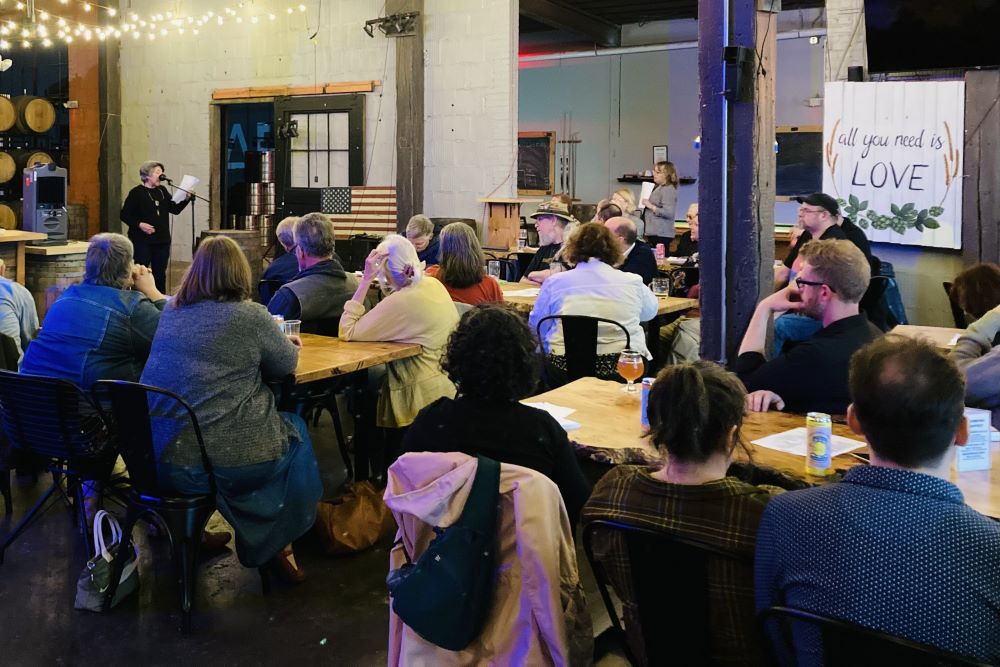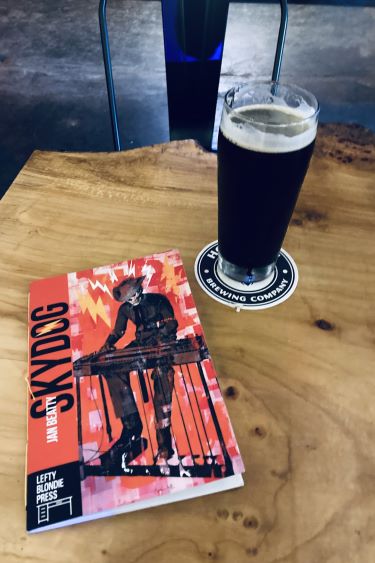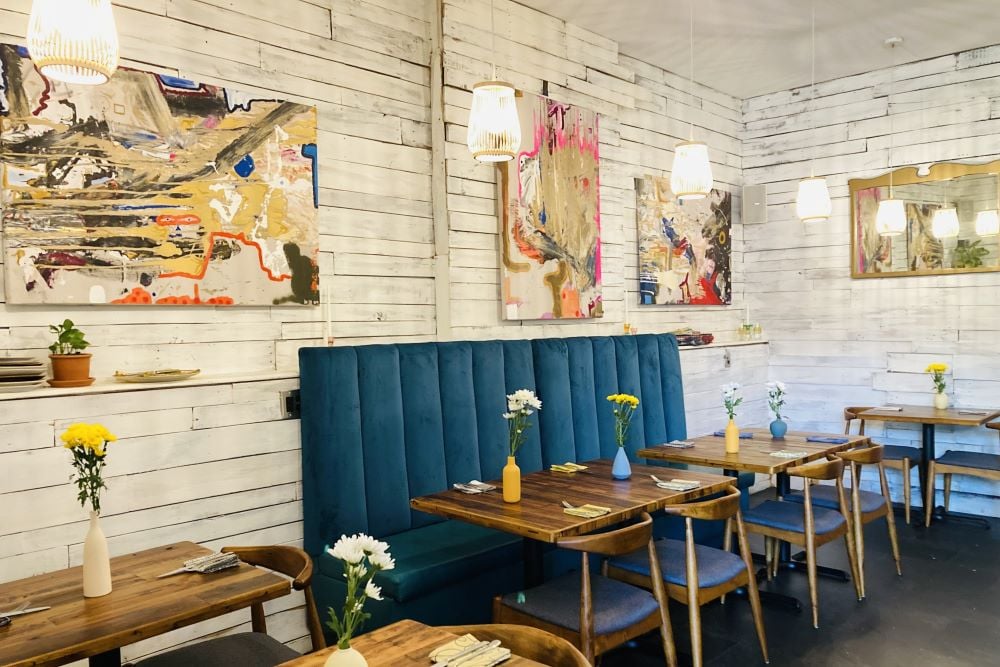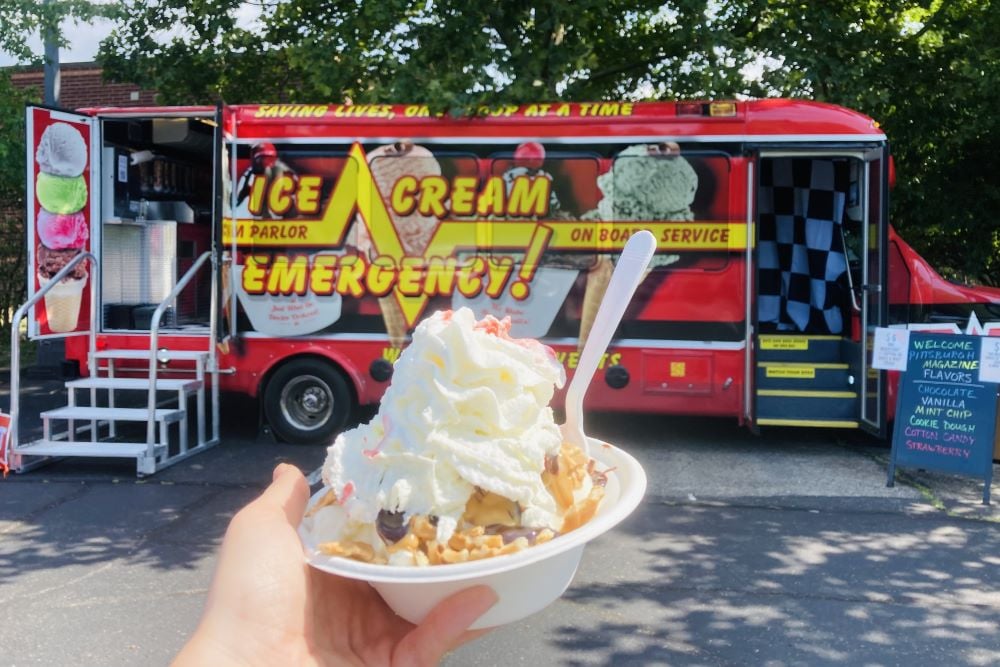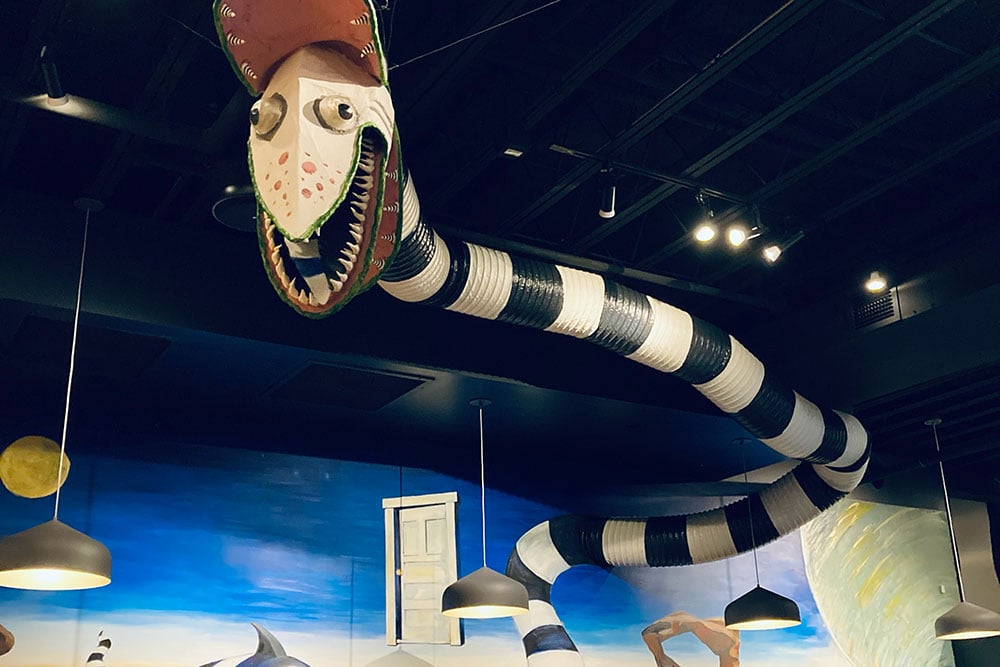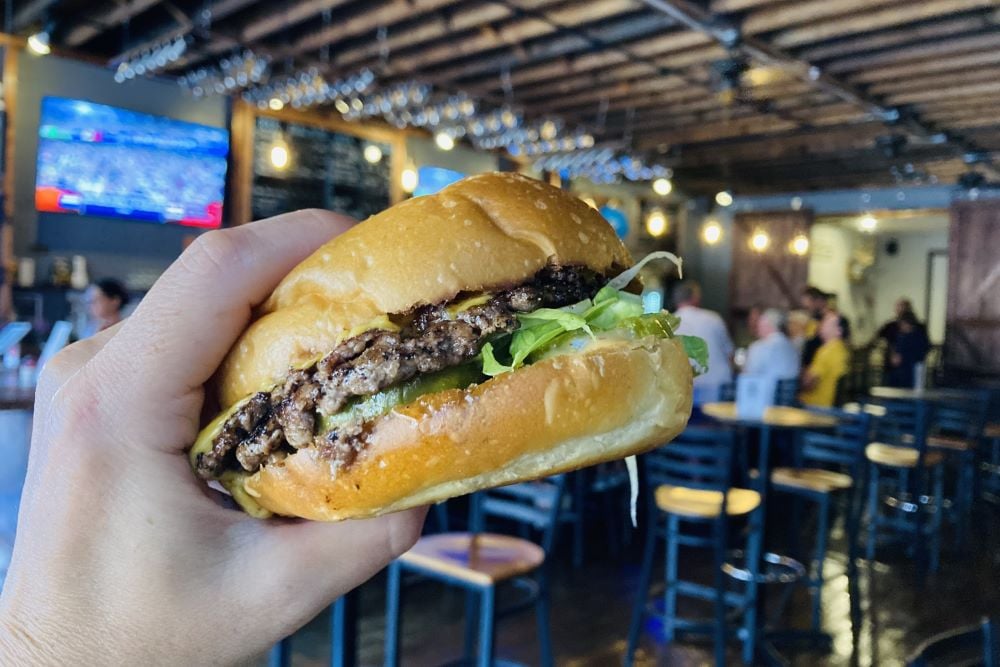Hemingway’s Summer Poetry Series moves to Lawrenceville’s Hop Farm Brewing Co.
The 50-year-old literary event is held every second and fourth Tuesday through August.

PITTSBURGH MAGAZINE BOOK EDITOR KRISTOFER COLLINS READS AT THE HEMINGWAY’S SUMMER READING SERIES KICK-OFF AT HOP FARM BREWING CO. PHOTO BY KRISTY GRAVER.
There once was a keg full of beer
that started to tremble with fear.
Barkeep pulled the tap.
The keg said, “Oh, crap!
A bunch of poets are here!”
Writers, like myself, have been known to knock back a few pints for inspiration, so it’s fitting that the long-running Hemingway’s Summer Poetry Series has a new home at Hop Farm Brewing Co. in Lawrenceville.
Through August, events will be held at 7 p.m. every second and fourth Tuesday at 5601 Butler St. There will be five featured readers each night followed by several open-mic slots. Co-hosts and curators Joan Bauer and Kristofer Collins are happy to carry the torch lit by late Pittsburgh poet Jimmy Cvetic.
“It started 50 years ago, or thereabouts,” says Collins, Pittsburgh Magazine’s Literary Editor. “We’re poets, so we strive for emotional accuracy, not facts.”
The series was created as an all-inclusive extension of the fall and spring programs overseen by Bruce Dobler and Ed Ochester, writers and faculty members of the University of Pittsburgh English department. (Dobler, who died in 2010, was my favorite professor when I studied creative writing at Pitt.)
For decades, local and nationally known poets met at Hemingway’s Cafe, an Oakland bar that was, and still is, a popular hangout for literary types. Since Fuel and Fuddle closed last year, it’s one of the last haunts remaining from my college days. Speaking of blasts from the past, the series’ website features audio recordings of readings dating back to 2011. It’s an artistic time capsule that’s a lot of fun to hear.
After a pandemic pause, the event moved to Bloomfield’s White Whale Bookstore for a few seasons, but, because readings tend to stretch late into the evening, Bauer and Collins thought it would be better suited for a nighttime venue.
I think Hop Farm is the perfect place for the Hemingway series to grow. Located on a quiet stretch of Butler Street, the large space offers an array of tasty brews and food. Customers can order at the bar or by scanning a QR code at their table.
At one point, Collins and his wife, Anna Johnson, frequent Hop Farm patrons, had a sandwich named after them. Owner Matt Gouwens says the Kris & Anna, a sausage patty slathered in Buffalo sauce with chunks of blue cheese, might make a return to the menu along with some poetry-inspired surprises.
I attended the inaugural Hop Farm event on May 14. People packed the 7,000-square-foot warehouse space to hear poets Jan Beatty, Ben Gwin, Amy Lee Heinlen, Hallie Pritts and Fred Shaw read their work. Books, authored by the speakers, were also for sale.
Surrounded by kegs and against a backdrop of wooden barrels, they shared their stories and bared their souls to an enthusiastic all-ages audience. Subjects ranged from reincarnation and worker’s rights to gender and parenthood.
Heinlen, co-creator of Lefty Blondie Press, has been writing poetry since she was a child. She’s a veteran of the Hemingway’s series but hadn’t read her work publicly in a long time. She wore dangly, book-shaped earrings for the occasion.
“I’m always nervous before a reading,” she says, “but it’s such a supportive and loving group. I see a lot of friendly faces here. My work is sonically driven. I delight in the sound of it. Poetry is meant to be read aloud.”
Bauer, one of the co-hosts who taught English and journalism history for many years, began penning poetry in 2000.
“A lot had happened in my life,” she says. “I needed some avenue of expression. I got involved with various poetry groups. It helped me a lot.”
The organizers are excited to bring back the open-mic portion of the series, giving a platform to new and diverse voices.
“I hope people enjoy it and want to come back,” Collins says. “We encourage people who aren’t poets to read their work. Sometimes, at the end of the night, you end up with three more poets.”
Maybe, with a little liquid courage, I’ll read some of my boozy limericks at Hop Farm this summer.

